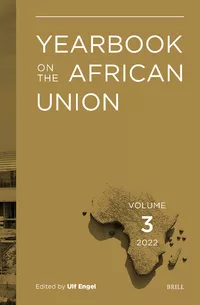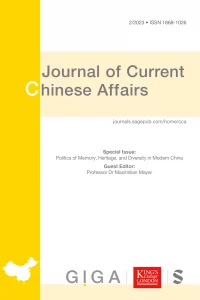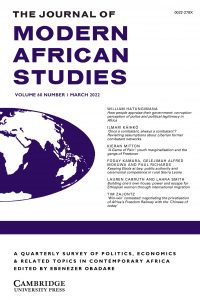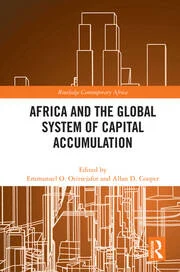New monograph in Palgrave’s International Political Economy series
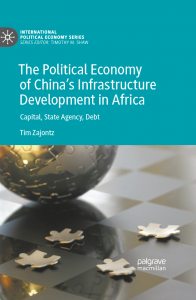
Book description
This book sheds light on structural drivers that led to the Chinese omnipresence in African infrastructure markets and offers a strategic-relational approach to the study of African agency in Sino-African infrastructure encounters. Case studies cover the Tanzania-Zambia Railway Authority (TAZARA), Zambia’s road sector as well as Tanzania’s Bagamoyo port and Standard Gauge Railway. It is shown that African (state) agency in the infrastructure sector is contingent upon dynamic state-society relations and distinct political-economic contexts and constraints. The book problematises contradictions related to infrastructure debt, the emergence of Sino-African public-private partnerships and the intensifying geopolitics-cum-geoeconomics of infrastructure across Africa.
The book…
- Combines theorisation of Sino-African infrastructure cooperation with in-depth case studies from Tanzania and Zambia
- Develops an original structurally grounded approach to the study of African agency in Sino-African relations
- Adds nuance to the highly politicised debates about Chinese-owned African debt in times of intensifying geopolitics
Critics’ reviews
“Theoretically informed and enriched by fieldwork, this new book sheds light on the sometimes-murky depths of Chinese infrastructure engagement in Africa. Using Tanzania and Zambia to ground the research, Tim Zajontz highlights the African state strategies that shaped disparate outcomes. This perceptive analysis has global implications. It will be a useful resource for scholars and policymakers trying to understand the expansion of Chinese capital across Africa, and beyond.”
Deborah Brautigam, Bernard L. Schwartz Professor of International Political Economy Emerita, School of Advanced International Studies, Johns Hopkins University
Continue reading “The Political Economy of China’s Infrastructure Development in Africa: Capital, State Agency, Debt”
